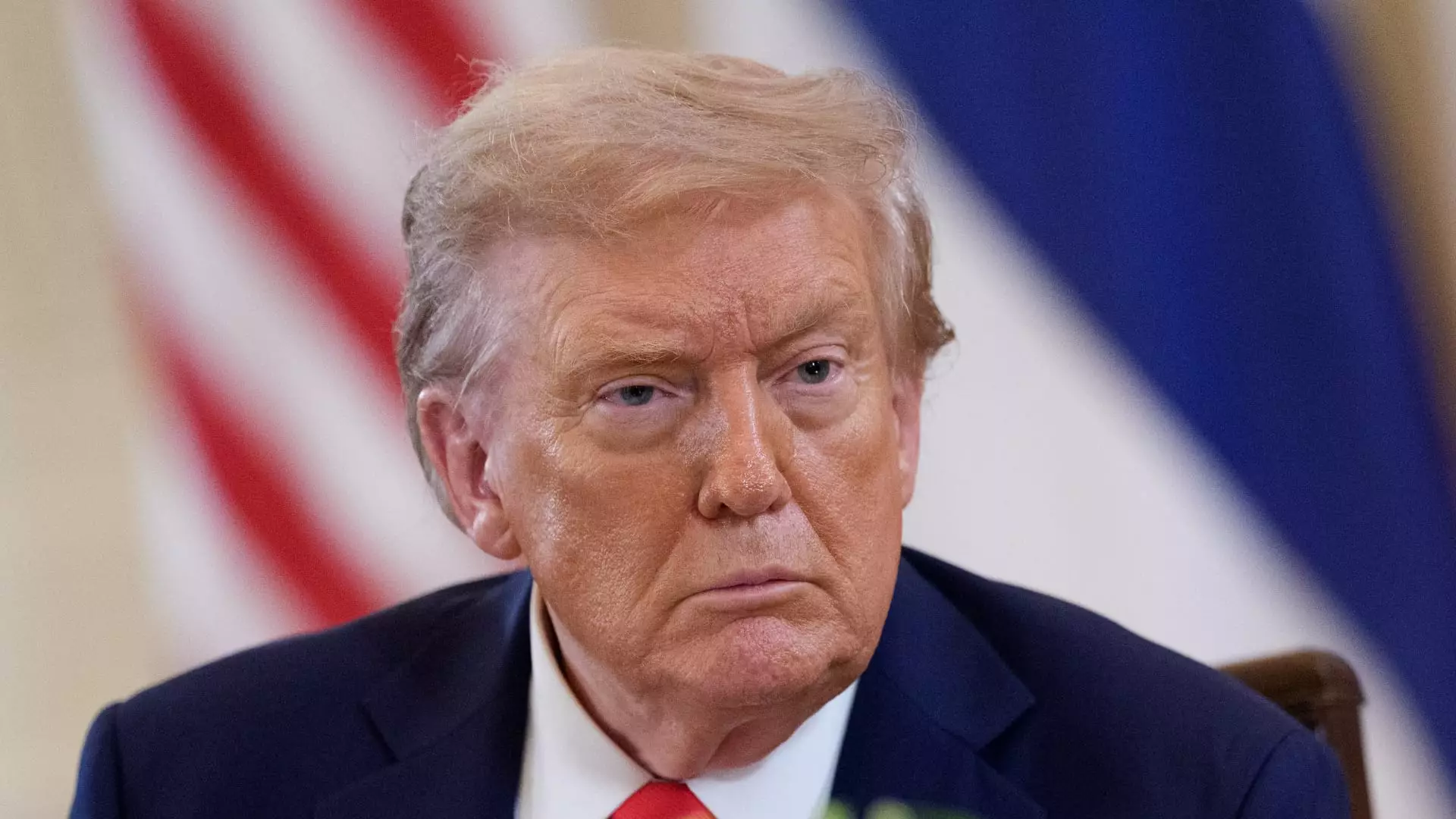The recent disclosure revealing Donald Trump’s extensive bond portfolio since assuming office exposes more than mere financial activity; it challenges the very foundation of trust in leadership. Far from a routine investment strategy, the president’s hundreds of transactions—amounting to at least $100 million—highlight a troubling intersection of political power and personal wealth. While official disclosures are often dismissed as procedural formalities, they reveal a pattern that suggests influence, conflict of interest, and a vehicle for financial gain cloaked in public service.
What is most startling about this revelation is how it contradicts the popular narrative of a politician committed solely to public interests. Instead, Trump’s investments broadly encompass bonds issued by local governments, sizable corporations, and industry giants—each with stakes subject to or impacted by his policies. This level of financial entanglement raises urgent questions about whether decisions are truly made in the public interest or are subtly influenced by personal financial incentives. At a moment when trust in political institutions is fragile, such opaque financial dealings serve only to deepen skepticism about whether elected officials are serving the people or their own economic agendas.
The Myth of the Benevolent Populist—and the Reality of Wealth Concentration
One could argue that a wealthy individual like Trump doesn’t necessarily conflict with the public good on principle. However, the sheer scale and scope of his holdings, combined with his role as a national leader, distort this notion entirely. Forbes reports his net worth at a staggering $5.5 billion, with a significant jump from his pre-presidential valuation. This upward trajectory during his political tenure fuels the narrative that public office is a lucrative cash cow, rather than a service designed to elevate collective well-being.
More troubling is the fact that Trump’s investments—including bonds issued by companies like UnitedHealth, Home Depot, Facebook, and Instagram—are intertwined with industries that directly or indirectly influence millions of Americans’ lives. His engagement amplifies the concern that his policy decisions could be swayed—if not explicitly driven—by financial interests. As a centrist liberal, I believe in balancing the legitimate rights of entrepreneurs and wealthy individuals with robust ethical boundaries that prevent conflicts of interest from corrupting governance. Trump’s example undermines this balance, showcasing how wealth concentration at the top undermines the very democratic principles we uphold.
The Erosion of Democratic Norms and the Risks of Financial Opacity
Federal regulations exempt presidents and vice presidents from certain conflict-of-interest rules, and Trump’s case underscores the peril of such loopholes. Unlike previous modern presidents who divested their business holdings before taking office, Trump’s continued investments—reported in excruciating detail—are a stark deviation from transparent norms intended to preserve the integrity of the office. This selective transparency fosters an environment in which financial interests can subtly influence policy, eroding public confidence and opening doors for corruption.
What’s particularly chilling is that these bond transactions encompass a variety of entities—local and state governments, water districts, hospital authorities. Their bonds serve critical community needs, yet their association with a sitting president’s financial activities raises alarms about whether public resources are being exploited for private gain. In a functioning democracy, transparency and accountability are non-negotiable. The current scenario calls into question whether the system is sufficiently robust to prevent the emergence of a financial aristocracy wielding influence behind closed doors.
A Wake-Up Call for Democratic Vigilance
This exposé should serve as a stark reminder for us all that wealth and power, when unchecked, threaten the very fabric of democracy. Trump’s extensive financial dealings exemplify a tendency among the ultra-wealthy to leverage political privilege for personal enrichment, often at the expense of the public good. As liberals committed to a fairer, more transparent society, we must advocate for reforms that close loopholes, enforce stricter conflict-of-interest rules, and prioritize genuine ethical standards for public officials.
The battle isn’t just about politics—it’s about protecting the integrity of governance itself. Wealth concentration should not equate to political dominance, and leaders must be held to standards that prevent their personal financial interests from undermining national interests. The revelations about Trump’s bond investments underscore the urgent need for reform and vigilant oversight. Without it, the line between public service and personal enrichment continues to blur, imperiling the democratic ideals we cherish.

